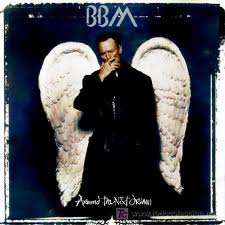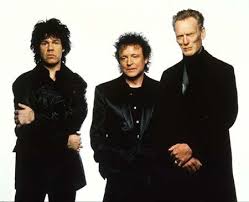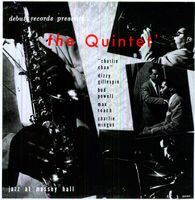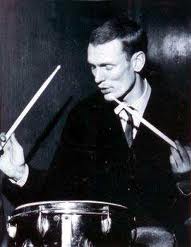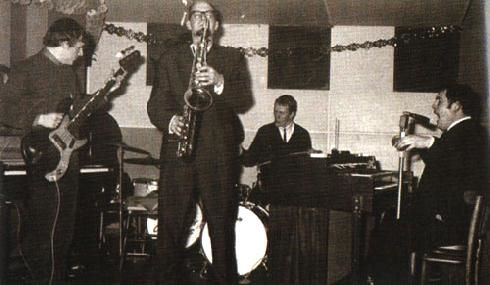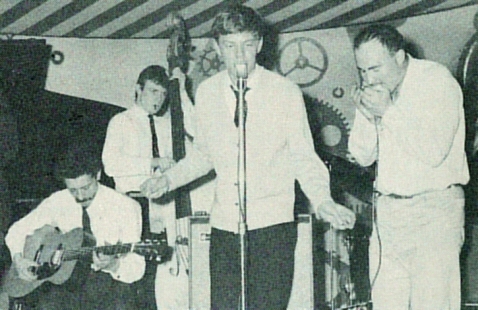Ginger Baker
“I’m just a working musician who’s struggling to play polo.”
If you’ve seen the documentary “Beware of Mr. Baker,” you know interviewing Ginger Baker can be a dicey proposition, maybe even injurious to your health.
When I met with Baker in Boston in 1994, he lived up to his cantankerous reputation, but he did not assault my person – not even verbally, aside from a few growls (Mick Jagger did not get off so easily).
We met on a weekday afternoon at Rocco’s, a restaurant on Charles Street (now a P.F. Chang’s), but Baker did not want to eat. Instead we talked in the bar, not because he wanted to tipple, but because there the drummer was able to puff away at his pipe without interference. Wiry, his jaw clenched, Baker was not in Boston to play music, but to play polo, a benefit match at the Myopia Hunt Club in the North Shore town of Hamilton, Mass. He had, however, recently released two new albums, which gave us ample musical reason to chat.
November, 1994
At Rocco’s restaurant, Boston
Do you play a lot of polo?
Not as much as I’d like to.
This is a benefit match [for the Wang Center’s Youth In Arts program] you’ve come for, right?
Yes. Basically it’s an opportunity to play. I’ve got friends up here. I came two years ago to play. Not last year, because I was busy moving to Colorado.
Is it a coincidence that you have two albums that have come out at nearly the same time?
Totally. The jazz thing [the Ginger Baker Trio’s “Going Back Home”] was done in four days. The BBM thing [Baker, Jack Bruce and Gary Moore’s “Around the Next Dream”] took about two weeks of studio time. I’ve always been basically a jazz player. But if you’re a musician, you should get out and play. I used to play classical music too. Tympani.
You have Charlie Haden [on bass] and Bill Frisell [on guitar] in your jazz trio. Are they people you particularly wanted to work with?
Yeah, especially Charlie. We did an horrendous gig about five years ago with a total lunatic guitar player who had a fight with his wife while we were playing. But playing with Bill and Charlie was great. They’re great players.
Is the album in any way a tribute to your influences, drummers like Art Blakey and Max Roach?
No .
You do do an Ornette Coleman tune [“Ramblin’”] on it. Of course Charlie played on the original recording with Ornette. Would you say Ornette was an influence on you?
Monk and Ornette Coleman were big influences. It was pretty happening doing an Ornette tune with Charlie.
Do you think there’ll be some touring with the trio?
It could happen.
The last cut on the album, “East Timor,” made me think of [Baker’s spoken word piece on Cream’s “Wheels of Fire”] “Pressed Rat and Warthog” meeting [Charlie Haden’s] the Liberation Music Orchestra?
It’s something I’ve been interested in since 1960, jazz and poetry. I don’t know anything about the Liberation Music Orchestra.
Do you have some connection to East Timor that made you want to address the situation there?
I have no connection to it whatsoever except it was something I thought of when we were in the studio. The Australians are getting the oil out and so are the Americans. There were five journalists killed there, two Englishmen, three Australians. The house they were staying in had an Australian flag. They were found hung upside down with their genitals in their mouths. The governments of Britain and Australia did zero. Nothing. It’s like the Gulf War. To get it going, you had the president on TV telling lies about how the Iraqi army was ripping babies out of incubators. It was totally untrue, but it got people to agree to go to war. Wars are used by politicians to give themselves power.
You moved to Colorado a year ago. What town?
I don’t live in a town. It’s in the country. I have nine horses. When I’m not touring I play polo. But I’ve been doing a lot of touring in Europe.
And you will be touring with BBM in the U.S.?
That’s the plan.
Doing a power trio album it’s inevitable that it will be compared to Cream.
We knew that when we did it and we said, “Well, so what?”
As I understand it Jack and Gary had gotten together and were looking for a drummer to form a trio.
No, no. What happened was that Jack and Gary had gotten together and were writing stuff for Gary’s solo album. Jack asked me if I wanted to do some of the sessions. I went over there for five days and it went so well they asked me to come back for five more. That went so well that they said, “This has got to be a band.” And I said, “Yeah, I’ll believe it when I see it.” When they asked me to come back to finish the album they had a record contract and we were a band.
Do you think BBM will be an ongoing unit?
I hope so. It’s been going very well. [BBM – or Bruce-Baker-Moore – only released the one album; Baker is the only one of the three seen in the cover photo.]
Was this your first time back in the power trio format since Cream?
I did it with Masters of Reality too [Baker played on one album by the American band, 1992’s “Sunrise on the Sufferbus’]. I thought that was a great album.
The problem with that was the record company didn’t know what to do with it. They marketed it as heavy metal and it isn’t. It has a variety of stuff on it. It’s quite musical. It’s not heavy metal, it’s music. It just shows you the state of the record industry. About three years ago I received a communication from Atlantic Records addressed to Miss Ginger Baker. Now you have someone working for Atlantic Records who doesn’t know who I am. They assume that because my name is Ginger I’m a girl. Well, I’ll have you know that in the whole of the Western world Ginger is a boy’s name. Only in America is Ginger a girl’s name. It used to be you used to have hair like this to be called Ginger. Now you have brunette girls called Ginger. Why? Obviously they got it from Ginger Rogers, but it isn’t normally a girl’s name. This has caused me so many problems. When we went to the session when we were doing the Ginger Baker Trio, I flew into L.A. and Atlantic had a car waiting for me. I saw a guy with a car and he just walked straight past me. I waited a half hour and started to get angry. Where the hell was the car? It was supposed to be here. Finally we saw this guy over on the side and he’s really puzzled, what do I want with him? He has a sign with my name. I say, “That’s my name.” He says, oh, he was looking for a girl. It’s one of the crosses one has to bear in this country.
I moved to Colorado from California. I’ve lived in the U.S. for six years. I still have to have a visa to be here. It’s because I was busted in 1971. I no longer have a record in England, but because immigration still has this in their records, I can’t become a citizen. If I had never been to America till right now, I could get a green card tomorrow. It’s off the record. But to get a green card I have to produce court records that no longer exist. Bureaucracy, it’s crazy. I could hire some expensive lawyers to fix it, I suppose, but that costs a lot of money. I’m just a working musician who’s struggling to play polo. I shouldn’t have to spend millions on lawyers to become a citizen. I’m very good for the American economy. I go to Europe and make money and then come here and spend it. I’m not some illegal alien coming here to make money.
Have you had the occasion to play much with Jack [Bruce] before BBM?
We did a couple of tours together. We did one of the states in 1989, I think. We went to Israel in 1991. I’ve known Jack since 1962. He’s like my younger brother. That’s why BBM sounds so much like Cream, because it’s Jack and I playing together.
Did you worry about evoking memories of Cream when you made the BBM record?
No, so what? So what? Gary isn’t Eric. That’s what makes the thing so new and different to me, he’s coming from a different place. But he’s a helluva guitar player. But he’s a very different person and very different guitar player from Eric.
Is it different going from jazz and to drumming with BBM?
I’m a jazz player. I was a jazz player from the first. In 1961, I made a conscious decision with several other jazz players that we would go commercial. In those days, there was a real distinction between good music and commercial music, stuff with vocals and all that. I’m a jazz player, always have been. So it was really great to be able to get together and make a jazz album. I’ve never done one, I haven’t had a chance to do that since the early days with the Graham Bond Organization. I really prefer it. When I play with Jack and Gary, it’s regimented. We have arrangements. Playing with someone like Bill and Charlie, the phrasing changes as we play it. We did that whole album in four days. It’s freer, more relaxed, you have no restrictions. If you’re playing rock and roll, you have to play rock. I have to play very simple with Jack and Gary, that’s what the music requires. Whereas if you’re playing jazz it’s a different thing altogether. It’s free. I’d love to get a big band together, get some really cool horn players. You can have great fun. It doesn’t have to be totally regimented. Things can be pretty elastic if you’ve got good musicians. I’ve been talking to Max Roach about doing something for several years. I keep getting messages from Max saying he’s going to whip my ass in public. I love Max. I’ve been listening to him since I’m 13 yrs old and he’s still playing great.
How did you feel about the Cream reunion at the Rock and Roll Hall of Fame [induction in New York in 1993]?
That was great. Oh, those rumors have been going on since we broke up. There are things that are against that from a purely moral point of view, which is my point of view. What was great about the Hall of Fame was that we weren’t getting paid to do it. It was great. It was like we’d been off for a week, not twenty-five years. The rehearsal was so good it was unbelievable.
Did playing with Cream make you want to do more of it?
I really don’t think it will happen. I don’t know, I think it’s very unlikely. One of the reasons it fell apart was that it didn’t matter how badly we played, there was still this incredible adulation. Sometimes when you know you’ve done a really bad gig, and everybody is standing and screaming and cheering…. We used to get a standing ovation before we even played a note. You felt like saying, “Calm down.” If we did it, it would be such a big thing. It would be different if we felt we were playing personally for our own enjoyment. but it would be horrendous, a circus. I’d love to work with Eric again. He’s a great friend of mine. He’s probably one of the best friends I’ve ever had.
Have you heard Eric’s blues record [1994’s “From the Cradle”]?
No, I don’t listen to music, I don’t listen to the radio, I don’t watch TV. When I’m not on the road, I concentrate on my horses and polo. Polo is a bit like music, it’s something you can never totally master.
It’s a rich man’s sport, isn’t it?
It’s true, there are a lot of rich people who play polo. It’s also true that there are a lot of people who play polo who can’t afford it. They skimp on other things. I know lots of people like that. They love the game so much they drive around in a battered old pickup truck. They’d rather buy a new horse than a new car. You have to make sacrifices to play. It’s a very difficult game in several ways. It’s been said that polo is like playing golf in an earthquake. It’s the oldest team sport in the world.
When did you start to play?
When I was living in Nigeria. I became very friendly with the best polo player in Nigeria…..So, let me ask you a question. Which of the two albums do you prefer?
The jazz one.
[Laughs] So do I. That’s where I came from. One of the first records I ever got was Charlie Parker, Dizzy Gillespie, Max Roach, Charlie Mingus and Bud Powell, the Massey Hall concert. That was just before I started playing. See, I was a drummer. I didn’t know it, but all the kids at school did. I used to bang on the desk. As soon as the teacher walked out of the room, I’d start playing on the desk. We’d have these jam sessions in the classroom. The teacher would walk back in and I’d be so involved I wouldn’t notice. I got into a lot of trouble.
I was a jazz fan before I played. All the guys I hung out with at school were jazz fans. Stan Kenton, Gerry Mulligan, Charlie Parker. Duke Ellington was the second record I got, with Louis Bellson. That’s where I’m coming from.
Then I became a musician. The first gig I got was playing traditional jazz. I was really lucky. The guys in the band wanted me to play like Baby Dodds, so they got me all these Baby Dodds records. I took it home and I thought, “I better listen to this.” I started listening to Baby Dodds and Zutty Singleton, the first jazz drummers, and I could see where it all evolved from.
I stayed a jazz drummer until 1962, ‘63. And I started out as a professional musician in 1956. There was the Graham Bond Organization [in 1963] and the Alexis Korner Band before that [1962]. It was composed of three total groove men, absolute jazz players. That was the explosion that happened in 1962 when the whole thing started, this whole new music when jazz players and blues players got together. The Stones came out of that. Mick Jagger used to hang out with the band. I hated him. I gave him a really hard time. I scared him, absolutely terrified him. He was this little kid hanging around, really shy, and I was a big time heavy junkie at the time. Nasty. I was the first rhythm section for them. Brian Jones and Mick first played with me, Jack Bruce and [pianist] Johnny Parker, the rhythm section of the Alexis Korner Band. We used to play in the intervals with them until I got fed up with them and told Brian to get his own rhythm section. He came back with these guys and I told him, “The drummer is bloody awful. You ought to get Charlie Watts.” That was in 1962. Charlie left Alexis Korner so I could join. Charlie was a big fan of mine. He didn’t really think he was cut out to be a musician, so he left the band because he thought music was far too insecure a profession.
Are you somewhat amazed by Mick Jagger’s success?
Yes, it is pretty amazing that a guy with so little talent could become so rich and famous. Extraordinary. This is the world in which we live. Charlie’s the best musician in that band by a country mile. He’s a big jazz fan. I’ve known him since 1961, a great guy, one of the nicest people in the music business.
[Postscript: Cream did indeed reunite. In 2005, Baker, Bruce and Clapton played four shows in London at the Royal Albert Hall and three in New York at Madison Square Garden. A year later Bruce said he expected there would be additional Cream performances, but Clapton denied this, as did Baker, who expressed his feelings about Bruce and any further Cream performances in a 2006 interview in an obscure British publication, Music Mart. “When [Bruce)’s Dr. Jekyll, he’s fine… It’s when he’s Mr. Hyde that he’s not. And I’m afraid he’s still the same. I tell you this – there won’t ever be any more Cream gigs, because he did Mr. Hyde in New York last year….(He) shouted at me on stage, he turned his bass up so loud that he deafened me on the first gig. What he does is that he apologises and apologises, but I’m afraid, to do it on a Cream reunion gig, that was the end. He killed the magic, and New York was like 1968… It was just a get through the gig, get the money sort of deal.”
Baker’s autobiography, “Hellraiser,” was published in 2010. I haven’t read it, but those who have say a good chunk of it consists of Ginger venting his rage at Jack Bruce.
After difficulties with the IRS, Baker sold his ranch in Colorado and moved to South Africa in the late 1990s (A pattern? In the early ‘80s Baker fled England and settled for a time in a mountain village in Italy to avoid a tax debt).]

